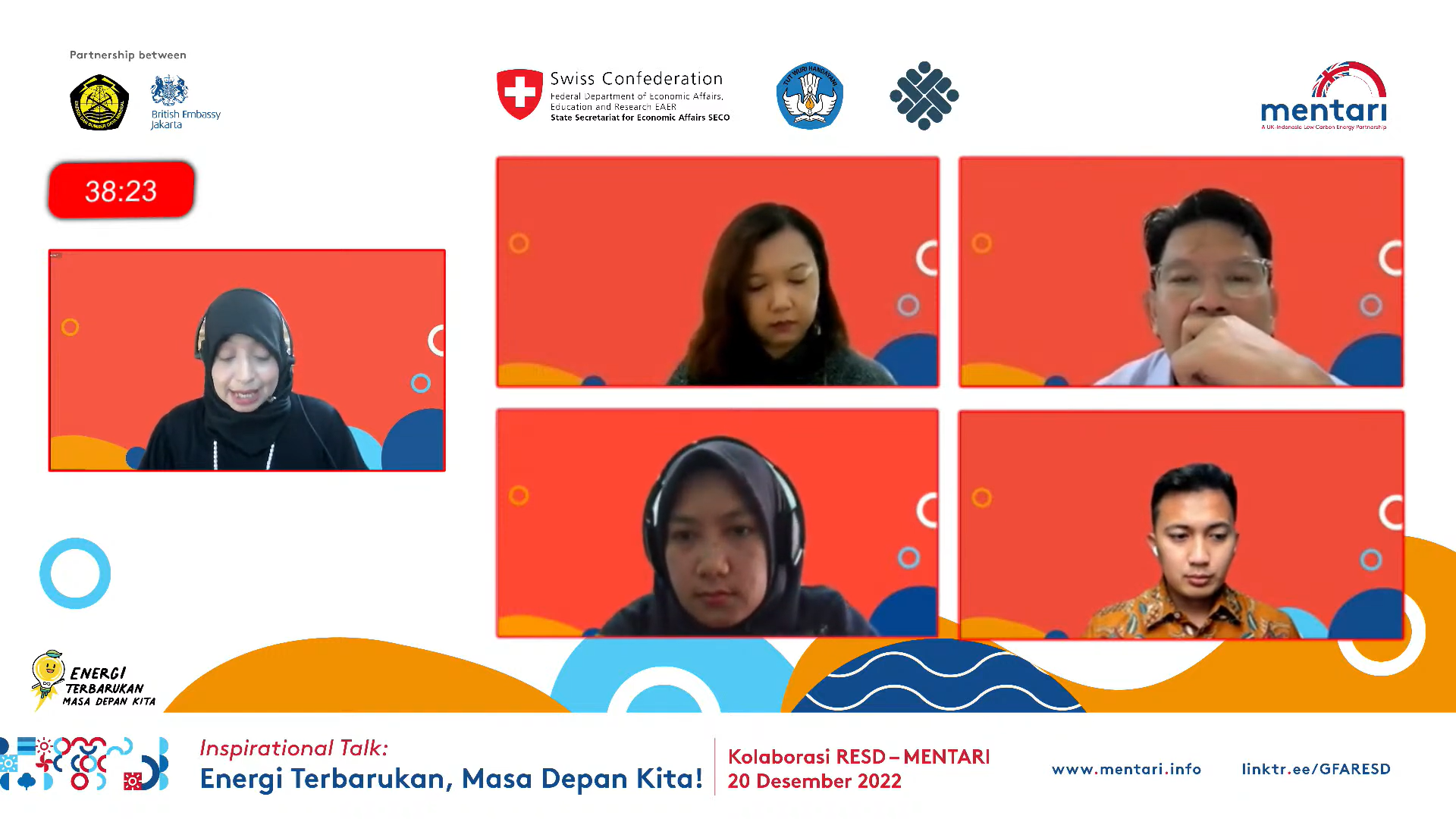(Jakarta, 20 December 2022) – The development of renewable energy in Indonesia is still very slow. Solar energy for example, data from the Ministry of Energy and Mineral Resources notes that the potential for solar energy in Indonesia reaches 3300 GW. However, its utilization is still less than 1% of the existing potential.
Fabby Tumiwa, Executive Director of the Institute for Essential Services Reform (IESR) and Chairman of the Indonesian Solar Energy Association (AESI) at the Inspirational Talks: Renewable Energy, Our Future organized by RESD and the Mentari Program (20/12) said there were a number of factors which currently hampers the development of renewable energy in Indonesia.
“Reducing the shares of fossil energy is not easy because there is a perception that fossil energy is more reliable and renewable energy such as solar and wind is not always available (intermittent). This makes renewable energy as the second choice when planning,” said Fabby.
One of the consequences of this policy is that financial institutions are less interested in financing renewable energy projects. Thus, the development of renewable energy is also very slow at the moment.
What needs to be done is to amend planning documents and energy policies based on credible evidence or studies (evidence based). IESR through its evidence-based studies then provides recommendations to policy makers to make or change policies to transition towards a cleaner energy system.
Even though studies and research have proven that a cleaner energy system will bring more benefits to the government and society, the process of policy change often takes a long time. For this reason, qualified advocacy and communication skills are needed to oversee and urge cleaner energy policies.
Fabby said that it is important to ensure equitable, quality and clean access to energy in the community because by having access to electricity, people or communities will be more prosperous. When people have access to quality electricity, they tend to have a better standard of living because they have more ability to carry out productive activities.
In his closing remark, Fabby emphasized that renewable energy is the future of Indonesia’s and even the world’s energy system. So, it is important to prepare a workforce that is suitable for future needs, especially for prospective workforce who are currently still in school or college.

